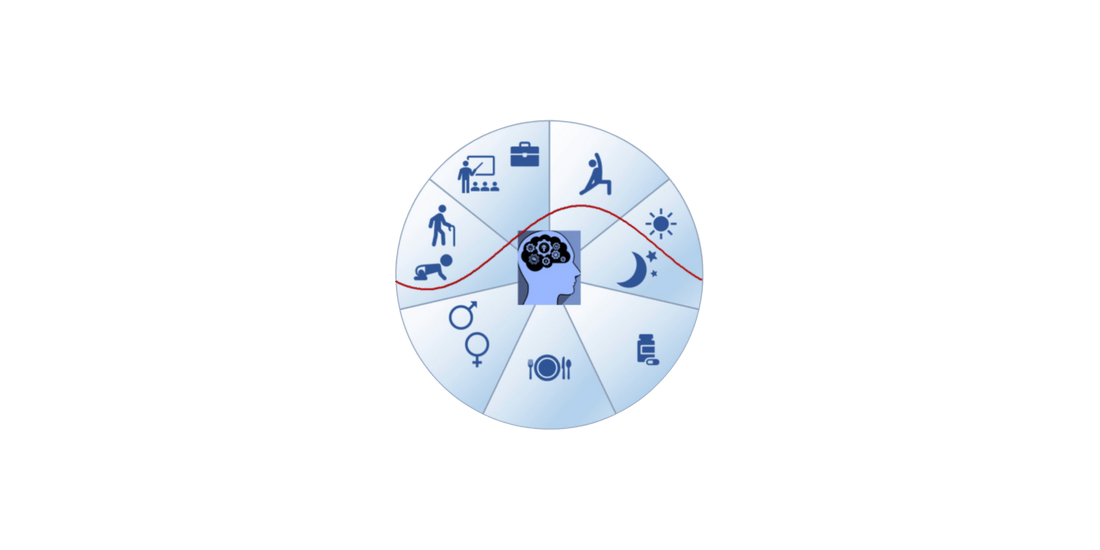
Science Behind Sleeping Against Your Biological Code, Resulting in Unconscious Self-Sabotage
Share
4 DNA differences that are pre-determined, acting like a code for optimal sleep, sounds weird. Can't we all adapt to new patterns?
The truth is that science now knows that It’s not about how long you sleep.. It’s about how aligned your biology is with your sleep, and the quality of sleep.
In other words: Your circadian rhythm has a blueprint—and you’ve might been sleeping against it.
Here’s where most people go wrong:
They unknowingly design their routines, schedules, and lives around a chronotype that isn’t theirs.
They force themselves into the “early bird” model… or shame themselves for being too alert at midnight.
They try everything except the one thing that changes everything: aligning with their biology.
You go to bed at a decent hour.
You avoid the late-night doom scroll.
You even try supplements, nighttime rituals, maybe een blue light glasses…
And still—your sleep feels off..
You wake up foggy, sluggish, not yourself.
Like your body’s been running… but in the wrong gear.
See, recent discoveries in chronobiology (the science of your body’s time systems) show that people fall into unique Sleep Archetypes based on their neurotransmitter patterns, hormone rhythms, and biological timing. These aren’t just “morning vs. night” preferences. These are deeply wired archetypes that govern:
- When your brain produces peak focus
- When your nervous system is wired for stress or calm
- How your body uses melatonin, cortisol, and serotonin throughout the day
- And when you actually recover during sleep
But not all rhythms run the same.
In fact, based on the latest science in chronobiology and neuro-performance, humans generally fall into one of four core Sleep Archetypes:
1. Morning Chronotype (The Early Riser)
Wakes up with mental clarity, energy peaks before noon, crashes earlier in the evening. Performs best with structured, morning-heavy routines.
2. Evening Chronotype (The Night Owl)
Slow to wake, but thrives after sunset. Creative energy and deep focus often kick in when others are winding down.
3. Bi-Phasic Sleeper (The Sleep Hacker)
Naturally functions best on two sleep phases—such as a core sleep at night and a short nap by day. Common among elite performers, military operatives, and historical geniuses.
4. Adaptive Chronotype (The Time Shifter)
Highly flexible. Can shift between routines, adapt to time zones, and adjust to changing demands—but may struggle without intentional structure.
And the result? Here are just a few reported examples;
- Difficulty falling asleep,
- Waking up unrested, even after 8 hours
- Low morning motivation, focus that fades by 2 PM, evening energy crashes or emotional flatlines
But once you know your archetype you gain control and everything begins to work for you: alignment.
That’s why scientists made a Sleep Archetype Quiz. And we wanted to make it more easily accessable to the public, so we partnered up and made it available for free for those interested.
→ Based on neuroscience, sleep physiology, and cognitive performance research, this quiz maps your answers across the four archetypes—then reveals your dominant pattern, strengths, and potential optimizations*.
It’s a 2-minute diagnostic designed to uncover your chronobiological blueprint—and how to optimize it.
Take the quiz here → https://www.decodeyourbiology.com/quiz-sleep-archetypes
Thousands of people have taken it—and the #1 thing they say afterward is “I can’t believe I didn’t know this sooner.”, these type of reactions give us true sense of contribution and inspiration to add that extra bit of value to world.
knowing exactly when your mind works best. Knowing what sleep pattern helps you recover faster. Feeling restored, clear, and actually sharp when you wake up.
That’s what happens when you sleep with your biology—not against it.
So… what’s your chronotype?
Find out here → https://www.decodeyourbiology.com/quiz-sleep-archetypes
To your health (and sleep)!
